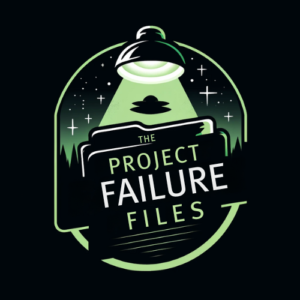Project Failure Files: The Balance Between Tools and Technique
In Episode 4 of the Project Failure Files webcast, our topic was “The Tool Trap: Navigating the Balance Between Tools and Techniques.” My co-host Sharon Weaver (@sharoneweaver) and I knew this was going to be a significant discussion, as we both work in technology and this is a topic that she and I have both written about, presented at conferences, and have much to share. To kick things off, we explored the complexities of tool utilization in project management and defined the core issue: the over-reliance on, and, sometimes, underutilization of, tools. We analyzed how excessive dependence on tools can stifle creativity and critical thinking, while underutilization can lead to inefficiencies and missed opportunities. We also briefly weighed the pros and cons of tools, highlighting their ability to enhance efficiency and consistency but also their potential to create dependency and inflexibility.
To help illustrate our points, I shared an experience where a past team was overly reliant on their dashboards and status reports, failing to recognize actual trends. This oversight almost impacted a support analyst’s role who seemed to be falling behind in his stats, but in reality, he was a star employee handling the most difficult customer issues. By focusing on the team dashboards and status reports, the leadership team failed to see what was actually happening on the ground, requiring upper management intervention to get them to realize their mistake. Sharon and I also discussed our shared experiences of working with clients who spent more time tweaking and adjusting tools than actually working on their projects. These examples underscore the importance of finding a balance between leveraging tools and maintaining human oversight and adaptability.
While we felt a little rushed toward the end of the show, we offered some practical solutions to address these challenges, emphasizing the need for human oversight, flexibility, and comprehensive training. The discussion also touched on the cultural aspects of tool use, noting how organizational culture and leadership can influence the effective adoption and integration of tools. The episode concluded with preventive measures to avoid tool dependency, such as regular audits and feedback mechanisms. To be honest, this episode flew by too quickly, and we had much more to discuss and share – but I’m glad to report that we’ve decided to add Part 2 to the schedule, which will be scheduled in late August. Looking forward to talking more about this important topic!
If you missed the livestream, you can watch the latest episode here:
Be sure to tune in next Monday, July 15th at 9am Pacific for Episode 5 of this weekly series as Sharon and I discuss “Consistency is Key: Avoiding Messaging and Approach Discrepancies.” Join us on LinkedIn.





1 Response
[…] on tools while preventing their underutilization (you can check out Part 1 on this topic here). We stressed that project managers often become too dependent on tools, neglecting critical human […]